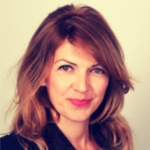The idea behind the «One day, one team, one chapter…» series is to present the four books published in the framework of the ICSEM Project and the Empower-SE Action, Social Enterprise in Asia, Social Enterprise in Latin America, Social Enterprise in Western Europe and Social Enterprise in Central and Eastern Europe, and to introduce the so many incredible people who took part in the crazy “ICSEM adventure”!

Three major types of social enterprise and a challenging lack of supportive legal framework and institutional environment
This chapter clarifies various notions and historical, contextual and conceptual issues that may contribute to the overall understanding of the SE field and its institutional environment in Croatia. A typology (with three types) of social enterprise is proposed as a first attempt to identify and classify existing SE models in Croatia.
For the first type, named “people-driven” social enterprise, job creation (for vulnerable people) was the main purpose for establishing the enterprise. Social enterprises of this type are often founded as cooperatives.
The second type, referred to as “income-driven” social enterprise, is commonly established by non-profit associations aiming to generate income for their social mission. Their products and services are usually closely related to their social mission, and they often operate as a trading-arm company.
“Innovation-driven” social enterprise is the third type that was identified; it is usually based on an innovative way of addressing some social problem. The most common legal form for this type is the company—often a spin-off or trading-arm company.
Social enterprises in Croatia are facing many challenges, but the most important barrier to their development is without doubt the slow pace of progress in the creation of a supportive legal framework and institutional environment. This study may contribute to a better understanding not only of the complex universe of social enterprise but also of the different SE models’ needs and impacts, which may in turn lead to different institutional and policy approaches.
The country team: Davorka and Danijel (Croatia)
Danijel Baturina is both an academic and a doer. He is an assistant professor at the Department of Social policy at the University of Zagreb (Croatia), a civil society practitioner and a policy consultant with expertise in research and practice in the fields of social innovation, social entrepreneurship, civil society, social policy, social inclusion of vulnerable groups and sustainable transformations. Danijel is also a long-term EMES member (click here to see his profile on the EMES website) with a passion for supporting and creating social impact.
Davorka Vidović, PhD, is an assistant professor at the Faculty of Political Science, University of Zagreb (Croatia). She is a sociology scholar and holds a doctoral degree from the Faculty of Humanities and Social Sciences, University of Zagreb. Her PhD thesis focused on social entrepreneurship in Croatia. For the last decade, her research interests have included various aspects of social enterprise, social entrepreneurship, social innovation, sustainable development and civil society in Croatian, regional and comparative contexts.
Danijel and Davorka also express special thanks to Luka Marković, mag.soc.pol from the University of Zagreb, for his help with empirical research in Croatia.
Visit the Routledge website to get information about the “Social Enterprise in Central and Eastern Europe. Theory, Models and Practice” book as well as the full Social Enterprise and Social Innovation series. You can also contact these national researchers to learn more about their work or download the ICSEM Project’s flyer here.



